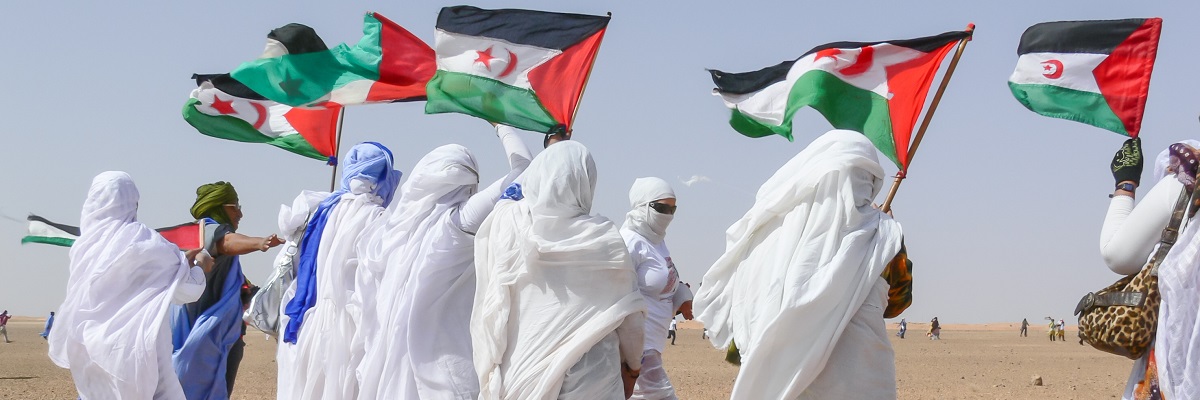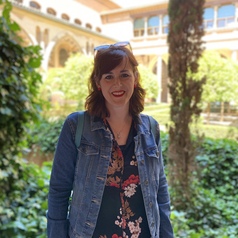Diplomacy
48 years after, there is no time for peace in the Western Sahara

Image Source : Shutterstock
Subscribe to our weekly newsletters for free
If you want to subscribe to World & New World Newsletter, please enter
your e-mail
Diplomacy

Image Source : Shutterstock
First Published in: Feb.28,2024
Apr.05, 2024
In a world marked by growing tensions and conflicts in places such as Gaza, Ukraine, and Yemen, the 48th anniversary of the proclamation of the Sahrawi Arab Democratic Republic on February 27 invites us to reflect on the importance of peace in a context where escalating violence threatens to overshadow any possibility of international harmony. Paradoxically, the Western Sahara conflict does not seem to be one of the conflicts of greatest concern to the international community. Thus, the 2022 annual report of the International Crisis Group did not include the Saharawi conflict among the 10 to be considered in 2023, although it did not foresee the Gaza crisis either. In the current global landscape, peace is at a crossroads, challenged by conflicts that seem to be emerging in different parts of the world. From the live-streamed genocide in Gaza to the conflicts in Ukraine and Yemen, it is clear that the escalation of violence, is on the rise. But this is only the visible side of the coin. According to the Geneva Academy of International Humanitarian Law and Human Rights, there are currently more than a hundred-armed conflicts in the world, including 7 in Europe and 45 in North Africa and the Middle East. Meanwhile, recently the more than 350 high-level participants from over 70 countries who took part in the Munich Security Conference have demonstrated the incoherence of foreign policy by showing double standards in the application of personalized international law in the conflicts in Ukraine and Palestine.
Although the motto of this conference, which began in 1963, is “Peace through dialogue”, peace and dialogue have disappeared from the equation, eclipsed by an exchange of accusations and requests for armament support. Only the President of the European Commission, Ursula Von Der Layen, reflected on the democratic costs of the current global situation, asking whether “democracy will survive in the world and whether we can defend our values”. In this context, the anniversary of the proclamation of the Sahrawi Arab Democratic Republic takes on a special relevance, reminding us of the urgent need to prioritize peace over discord. Throughout the decades, the Saharawi people have maintained a firm commitment to peace, even amidst provocations and breaches of agreements by Morocco. Their longing for a peaceful future has been eloquently manifested in their participation in conflict resolution efforts and in their constant willingness to negotiate peace. Despite the adversities, the Sahrawis have shown an admirable resistance, reaffirming their commitment to regional stability in a context in which no one seems to remember that it is now 48 years since the start of the conflict at Europe’s doorstep, with over 250,000 people struggling to survive in the refugee camps in Tindouf, increasingly forgotten by donors and international society. Even though the Sahrawi people have references such as Aminetu Haidar, internationally awarded for her peaceful resistance and struggle for human rights, reminding us that peace, despite the provocations and challenges, remains a fundamental objective for the Sahrawi people, the international community bets on whitewashing Morocco by granting it the presidency of the Human Rights Council.
The recent trip of the Spanish Prime Minister, Pedro Sanchez, to Morocco has raised questions about his commitment to international law. Ignoring Morocco’s occupation and exploitation of the Sahrawi territory not only contravenes fundamental principles, but also highlights the complexity of international relations in an increasingly interconnected world. In this critical context, there is a need for spaces for reflection that can shed some light on this bleak panorama. The University of Deusto will soon host the conference “Western Sahara: Exploring New Perspectives from International Law and International Relations” to analyze the complexities of the situation in Western Sahara, explore new perspectives and seek solutions from the field of international law and international relations. It will be a space for constructive dialogue, with the hope of finding paths towards peace and justice in a region marked by controversy. To paraphrase Hannah Arendt, “in dark times” it is imperative to remember that peace and international cooperation are fundamental to building a sustainable and fair future. The situation in Western Sahara provided us with an opportunity to reflect on how we can move towards a world where respect for international law and peaceful conflict resolution are the norm, not the exception.
First published in :

Professor and Researcher at the Faculty of Social and Human Sciences of the University of Deusto, University of Deusto.
Unlock articles by signing up or logging in.
Become a member for unrestricted reading!